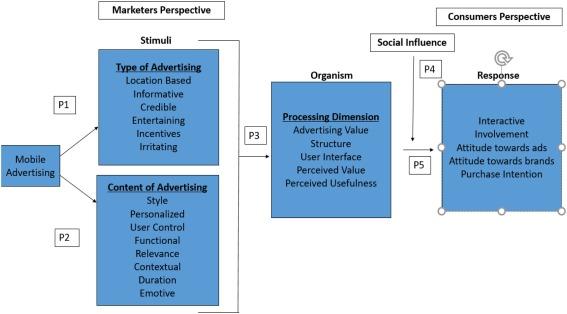top Skills & Career Pathways for a Accomplished Learning and Development Specialist
Introduction
The fast-evolving landscape of education technology (EdTech) is transforming how universities, colleges, and schools deliver learning experiences. As digital tools, online platforms, and remote learning become the norm, the demand for skilled Learning and Development specialists is on the rise. If you’re aspiring to join the EdTech field in higher education or K-12 institutions, understanding the top skills and career pathways is essential to stand out and succeed in this dynamic role. In this guide, we’ll explore the vital competencies, career development opportunities, and benefits associated with working as a Learning and Development Specialist in education technology.
What Does a Learning and Development Specialist Do?
A Learning and Development Specialist is responsible for designing, implementing, and evaluating training programs to enhance the skills and knowledge of educators, staff, or students. In the context of education technology, these professionals play a central role in integrating digital tools, supporting faculty development, and promoting innovative teaching strategies. their work bridges the gap between technology and pedagogy, ensuring educational institutions maximize the effectiveness of their digital learning environments.
Top Skills for Learning and development Specialists in EdTech
To excel as a Learning and Development Specialist in universities,colleges,or schools,candidates must hone a unique blend of technical,instructional,and interpersonal skills. Here are the most critical competencies:
1. Instructional Design Expertise
- Knowledge of curriculum development and learning theories (e.g., ADDIE, SAM, Bloom’s Taxonomy)
- Experience creating engaging e-learning modules using authoring tools (Articulate Storyline, Captivate, etc.)
- Ability to align objectives with institutional goals
2. Technology Integration Skills
- Proficiency with Learning Management Systems (Moodle, Canvas, Blackboard, etc.)
- understanding of multimedia tools (video editing, interactive content creation)
- Familiarity with integrating third-party EdTech solutions
3. Data Analysis and Assessment
- Ability to gather and interpret learning data for continuous improvement
- Experience with assessment tools and analytics dashboards
- Competence in measuring training effectiveness and learning outcomes
4. Project Management
- Organizational skills to manage multiple projects and deadlines
- Use of project management platforms (Asana, Trello, Monday.com)
- Stakeholder management and cross-functional collaboration
5. interaction and Facilitation
- Strong presentation and public speaking skills
- Ability to simplify complex tech concepts for non-technical audiences
- talent for facilitating workshops, webinars, and training sessions
6. Change Management
- Supporting faculty and staff in adapting to new technologies
- Managing resistance and fostering digital adoption
7. continuous Learning Mindset
- Keeping up-to-date with emerging EdTech trends and best practices
- Commitment to professional development through certifications and workshops
Career Pathways for Learning and Development Specialists in Education Technology
Careers in Learning and Development within education technology offer a variety of opportunities for growth and specialization. Here are some common career pathways:
Entry-Level Roles
- instructional Technologist
- eLearning Designer
- Training Coordinator
Mid-Level Roles
- Learning and Development Specialist
- Instructional Designer
- Professional Development Trainer
Senior-Level Roles
- Learning and Development Manager
- Director of Instructional Technology
- eLearning Program Manager
- Chief Learning Officer ( CLO )
Career progression often involves expanding project scope,moving into strategic leadership roles,or specializing in key areas such as EdTech innovation,digital conversion,or learning analytics.
Benefits of Pursuing a Career as a Learning and Development Specialist
- High Demand: With the rapid digitalization of education, institutions are investing more in technology-driven learning, ensuring steady job growth.
- Impact: Make a real difference by empowering educators and students to thrive in tech-enabled environments.
- Competitive Salary: Roles in education technology often come with attractive remuneration and benefits, notably at the mid-to-senior levels.
- Continuous Learning: work at the cutting edge of innovation, with regular opportunities to develop new skills and knowledge.
- Diverse Career Paths: Flexibility to branch into management, consulting, or specialist positions depending on personal interests.
Practical Tips for Job Seekers in Learning and Development
-
Build a Strong Portfolio
Showcase sample lesson plans, e-learning modules, and project case studies. Demonstrating measurable impact is key to standing out.
-
Earn Relevant Certifications
Consider credentials such as Certified Professional in learning and Performance (CPLP), eLearning Guild certifications, or instructional design certificates.
-
expand Yoru Network
Attend edtech conferences, webinars, and join professional associations to connect with industry leaders.
-
Stay Informed
Subscribe to EdTech publications and online forums to keep up with trends and technological advancements.
-
Hone Your Soft Skills
Develop communication, problem-solving, and adaptability skills, as they’re vital for collaborating with educators and stakeholders.
-
Gain Real-World Experience
Volunteer for technology pilots or faculty development projects in your current role, or apply for internships at education institutions.
Frequently Asked Questions
What qualifications do I need to become a Learning and Development Specialist in education technology?
Most employers require a bachelor’s or master’s degree in education, instructional design, instructional technology, or a related field. Hands-on experience with curriculum development, e-learning platforms, and relevant certifications is highly valued.
Which universities, colleges, or schools hire Learning and Development Specialists?
Both public and private educational institutions hire learning and Development professionals. These include universities, community colleges, K-12 school districts, online schools, and educational non-profits.
How can I prepare for an interview for this role?
Be prepared to discuss your experience with instructional design, technology integration, professional development workshops, and data-driven assessment. Bring a digital portfolio and be ready to demonstrate your familiarity with common EdTech platforms.
Conclusion
The role of a Learning and Development Specialist in education technology is both challenging and immensely rewarding.By cultivating the right mix of instructional, technological, and leadership skills, you can play a pivotal part in shaping the future of digital learning at universities, colleges, and schools. Whether you’re just starting your career or seeking to advance, the opportunities in EdTech are plentiful and diverse. Invest in your professional growth, stay curious, and embrace the possibilities that come with being a catalyst for educational innovation.

